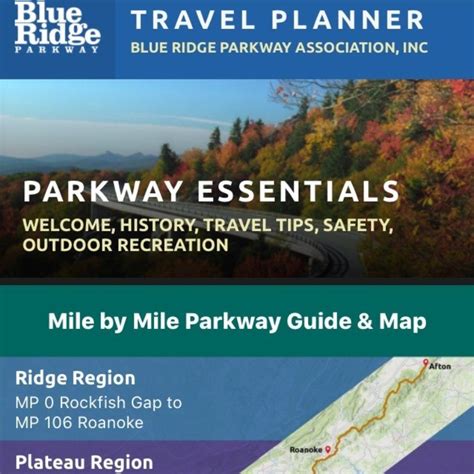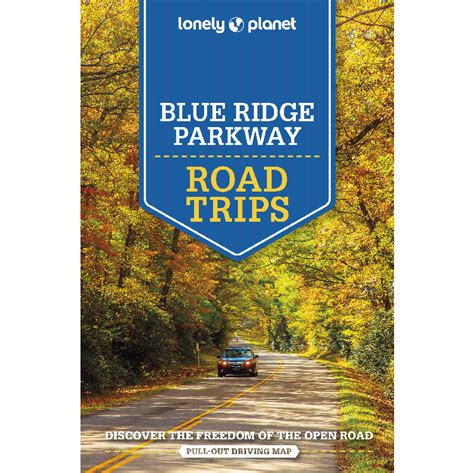Planning a trip can be both exciting and overwhelming, but with the right advice, you can ensure your journey is nothing short of unforgettable. Whether you’re a seasoned traveler or embarking on your first adventure, our expert tips are designed to help you navigate every aspect of your trip with ease. From packing the essentials to managing your budget, choosing the best accommodations, and staying safe on the go, we’ve got you covered. We’ll also delve into making the most of local cuisine, respecting cultural norms, and utilizing essential travel apps and gadgets. Get ready to enhance your travel experience with our comprehensive guide to a memorable and hassle-free trip.
Join elolok.net for a detailed examination of this topic.
1. Packing Essentials
Packing smartly is the foundation of a successful trip. Start by making a checklist of essentials tailored to your destination, considering the climate, activities, and duration of your stay. Prioritize versatile clothing that can be layered, mixed, and matched, allowing you to pack light while still having outfit options. Don’t forget to include comfortable shoes suited for walking or any planned excursions.
Toiletries should be kept minimal and within airline regulations. Invest in travel-sized containers or solid alternatives like shampoo bars. A well-organized toiletry bag with compartments can save space and keep your items easily accessible.
Consider packing a portable charger, an adapter for international travel, and copies of important documents like your passport and travel insurance. A compact first-aid kit with basic supplies such as bandages, pain relievers, and any personal medications is crucial for unforeseen situations.
Utilize packing cubes or compression bags to maximize luggage space and keep your items organized. If you’re bringing valuable items, consider a small, portable safe or a money belt for added security.
Lastly, always leave a bit of room in your suitcase for souvenirs or items you may acquire during your trip. With careful planning and mindful packing, you’ll be well-prepared and stress-free as you embark on your journey.

2. Budgeting and Saving Money
Budgeting is key to making the most of your trip without breaking the bank. Start by setting a realistic budget that includes all expected expenses such as transportation, accommodation, meals, and activities. Research your destination to get an idea of average costs and prioritize your spending on what matters most to you.
Booking flights and accommodations in advance can often save money, especially if you take advantage of deals or use comparison websites. Consider traveling during off-peak seasons when prices are lower and crowds are thinner. For meals, explore local markets and street food for affordable yet authentic dining experiences.
To keep daily expenses in check, set a daily spending limit and track your expenses with a budgeting app. Additionally, look for free or low-cost activities like walking tours, parks, or museums with discounted entry fees.
Another way to save is by using public transportation instead of taxis or rideshares. If you plan to visit multiple attractions, consider purchasing a city pass or combo ticket for better value.
By planning and sticking to a budget, you can enjoy your trip without financial stress.

3. Choosing the Best Accommodation
Choosing the right accommodation can significantly impact your travel experience. Start by identifying your priorities: proximity to major attractions, budget, and the type of experience you want. Research various options including hotels, hostels, vacation rentals, and boutique guesthouses. Each offers unique benefits, from hotel amenities and services to the local charm of a rental.
Read reviews on trusted platforms to gauge the quality and reliability of potential accommodations. Pay attention to feedback about cleanliness, safety, and the accuracy of descriptions. Location is crucial—select a place near public transportation or within walking distance of key sites to save time and money.
Consider the amenities that matter most to you, such as Wi-Fi, breakfast, or a kitchenette. For longer stays, a rental with self-catering facilities can provide more flexibility and help you save on dining costs.
Lastly, book early to secure the best rates and availability. Flexible booking options can also offer peace of mind if your plans change. By carefully selecting your accommodation, you’ll enhance your overall travel ex

4. Navigating Transportation Options
Navigating transportation efficiently is essential for a smooth travel experience. Start by researching transportation options available at your destination, such as public transit, taxis, rideshares, and bike rentals. Each option has its advantages depending on your needs and budget.
Public transportation, including buses and trains, is often the most cost-effective choice for getting around a city. Many destinations offer travel passes or multi-ride tickets that can save you money if you plan to use public transit frequently. Make sure to check the schedules and routes in advance to avoid any surprises.
For more convenience, taxis and rideshare services like Uber or Lyft can be ideal, especially if you’re traveling in a group or have heavy luggage. These services often provide apps that make booking easy and transparent.
If you’re exploring a city with manageable distances, consider renting a bike or scooter. This option not only provides flexibility but also allows you to experience the city at your own pace and enjoy the local sights.
For longer trips between cities or countries, look into options such as flights, trains, or buses. Booking tickets in advance can help you find the best deals. By understanding and planning
5. Staying Safe While Traveling
Staying safe while traveling is paramount to ensuring a worry-free experience. Begin by researching your destination’s safety guidelines and potential risks. Familiarize yourself with local emergency services, and keep a list of important contacts, including the local embassy if traveling internationally.
Carry only the essentials in a secure, hidden money belt or pouch to protect your valuables. Avoid displaying expensive items or large amounts of cash in public. It’s wise to use hotel safes or secure lockers for storing important documents and valuables.
Stay vigilant in crowded areas and be cautious of pickpockets. If you’re using public transportation, keep an eye on your belongings and be aware of your surroundings. When using rideshare apps or taxis, confirm the driver’s identity and vehicle details before entering.
Health and safety should also be a priority. Carry a basic first-aid kit and any personal medications you might need. Make sure you have adequate travel insurance that covers health emergencies and trip interruptions.
Be cautious with food and water to avoid illness. In areas with questionable water quality, opt for bottled water and avoid street food if you’re concerned about hygiene.
Lastly, respect local customs and laws to avoid unnecessary trouble. By staying informed, prepared, and aware, you can enjoy a safer and more enjoyable travel experience.
6. Making the Most of Local Cuisine
Making the most of local cuisine is a delightful way to enhance your travel experience. Start by researching the destination’s culinary highlights and must-try dishes. Visit local markets, food stalls, and restaurants to experience authentic flavors and traditional cooking methods.
Be adventurous and try regional specialties that you can’t find at home. Ask locals for recommendations or follow food bloggers and travel guides for insider tips. Street food can offer a genuine taste of the local culture, but ensure it’s from reputable vendors to avoid health issues.
If you have dietary restrictions, communicate them clearly to restaurant staff or chefs to ensure a safe dining experience. Participate in food tours or cooking classes to deepen your understanding of the cuisine and learn new recipes.
By embracing local food and dining experiences, you’ll gain a richer appreciation of the culture and create memorable culinary experiences during your t
7. Cultural Etiquette and Respect
Understanding and respecting cultural etiquette is crucial for a positive travel experience. Before you go, familiarize yourself with the local customs, traditions, and social norms of your destination. Simple gestures, such as greeting people appropriately or dressing modestly, can go a long way in showing respect.
In many cultures, polite behavior includes removing shoes before entering homes or certain establishments, and using appropriate manners during meals. Be mindful of local customs related to tipping, personal space, and public behavior.
Learning a few basic phrases in the local language can also demonstrate your respect and willingness to engage with the culture. Avoid controversial topics and be sensitive to cultural and religious practices.
When visiting sacred sites or places of worship, adhere to dress codes and conduct guidelines. By being aware of and respecting local etiquette, you contribute to a more respectful and enjoyable interaction with the people and culture of your travel destination.
8. Time Management and Scheduling
Effective time management and scheduling are essential for making the most of your trip. Start by planning your itinerary in advance, listing the key attractions, activities, and experiences you want to enjoy. Prioritize must-see sites and create a flexible schedule that allows for spontaneity and relaxation.
Allocate specific times for each activity and factor in travel time between destinations. Be realistic about how much you can accomplish in a day, avoiding over-scheduling that can lead to fatigue. Incorporate downtime into your schedule to rest and explore unplanned opportunities.
Utilize travel apps and tools to help with planning and real-time adjustments. Maps, local transportation schedules, and booking confirmations can keep you on track and informed.
Be mindful of local time zones and adjust your plans accordingly to prevent jet lag and maximize your time at the destination. By managing your time effectively, you’ll ensure a well-balanced trip that combines planned activities with the freedom to enjoy unexpected discoveries.
9. Essential Travel Apps and Gadgets
Essential travel apps and gadgets can greatly enhance your journey, making it more convenient and enjoyable. Start by downloading key apps before your trip. Navigation apps like Google Maps or Waze are invaluable for finding your way around, whether you’re driving or using public transport. Language translation apps, such as Google Translate, can help bridge communication gaps in foreign countries.
Booking and itinerary management apps like TripIt or Kayak keep all your reservations and travel details organized in one place. For real-time updates on flights, trains, or buses, use apps specific to your transportation providers.
Consider carrying a portable charger to keep your devices powered throughout the day. A universal travel adapter is essential for charging electronics in different countries. Noise-canceling headphones can provide comfort on long journeys or noisy environments.
For safety, apps that provide local emergency information or health resources can be crucial. Additionally, a travel wallet with RFID protection can safeguard your personal and financial information from potential theft.
Gadgets like a compact camera or smartphone with a good camera can capture memories without the bulk of a traditional camera. By leveraging these apps and gadgets, you’ll streamline your travel experience and stay connected and prepared.
10. Health and Wellness Tips
Maintaining health and wellness while traveling is key to a pleasant trip. Start by staying hydrated and eating balanced meals to keep your energy levels up. Carry a reusable water bottle and refill it regularly. Opt for fresh, locally-sourced foods when possible, and avoid excessive consumption of heavy or unfamiliar dishes that might upset your stomach.
Pack a basic first-aid kit with essentials like pain relievers, bandages, and any personal medications. If you’re traveling internationally, check if any vaccinations or health precautions are needed for your destination.
Ensure you get adequate rest by adjusting your sleep schedule to the local time zone before you arrive. Combat jet lag by staying active during the day and avoiding heavy meals close to bedtime.
Exercise can help keep your energy levels high and reduce stress. Many hotels offer fitness centers or you can explore outdoor activities like hiking or jogging in local parks.
Finally, practice good hygiene by washing your hands regularly and using hand sanitizer. By taking these health and wellness measures, you’ll stay refreshed and enjoy your travels to the fullest.
By following these expert tips, you can ensure a memorable and stress-free travel experience. From packing essentials and budgeting wisely to embracing local cuisine and respecting cultural norms, every detail contributes to a smooth journey. Effective time management, smart use of travel apps and gadgets, and attention to health and safety will enhance your adventure. With thoughtful planning and preparation, you’re set for an unforgettable trip filled with exploration and joy.
elolok.net